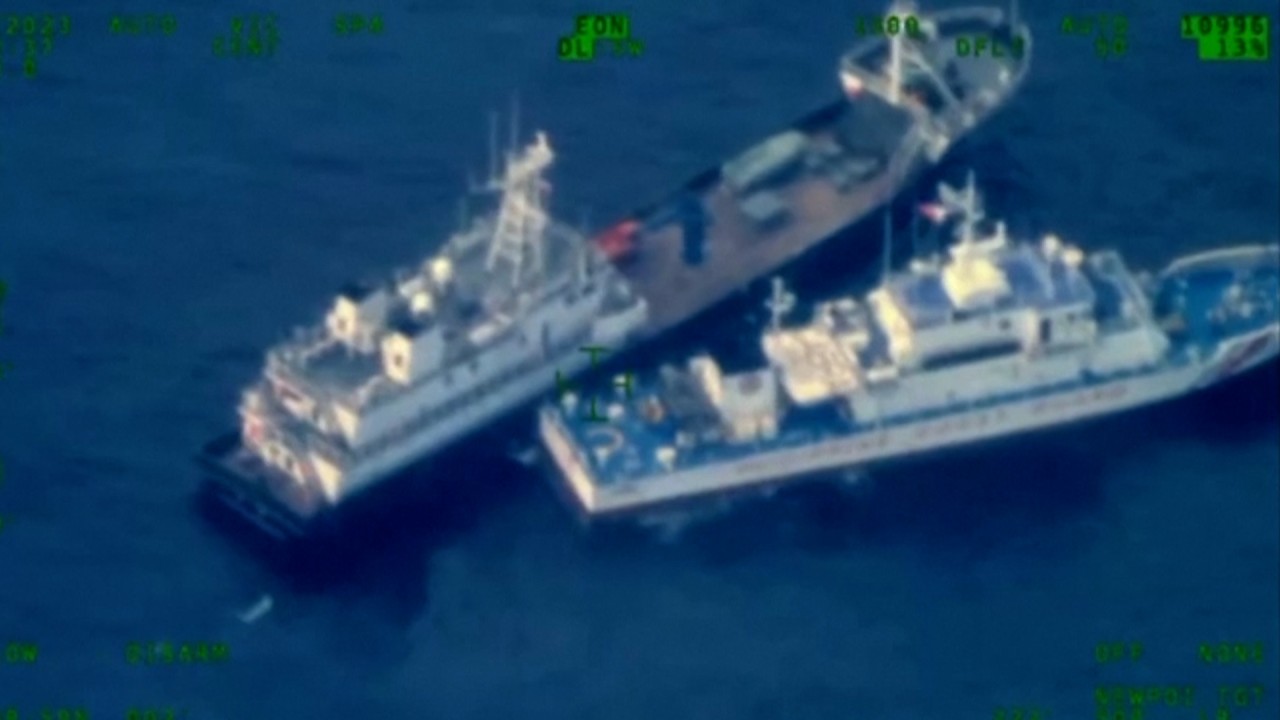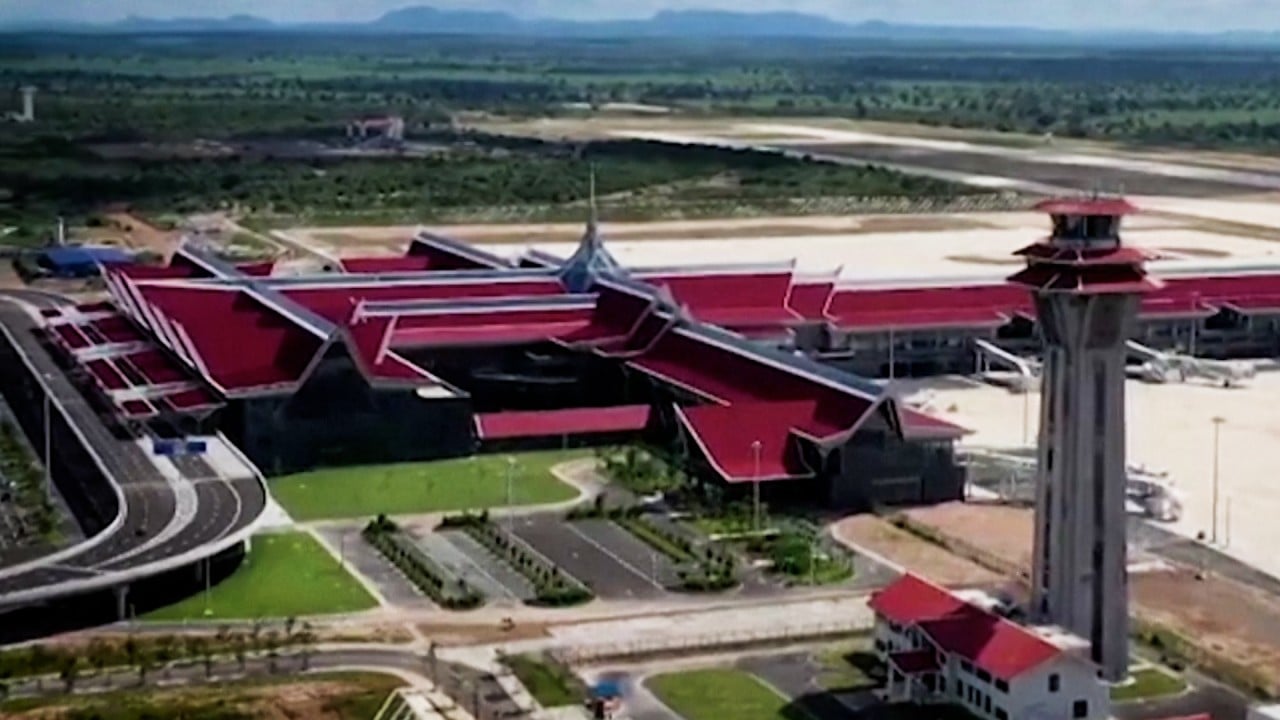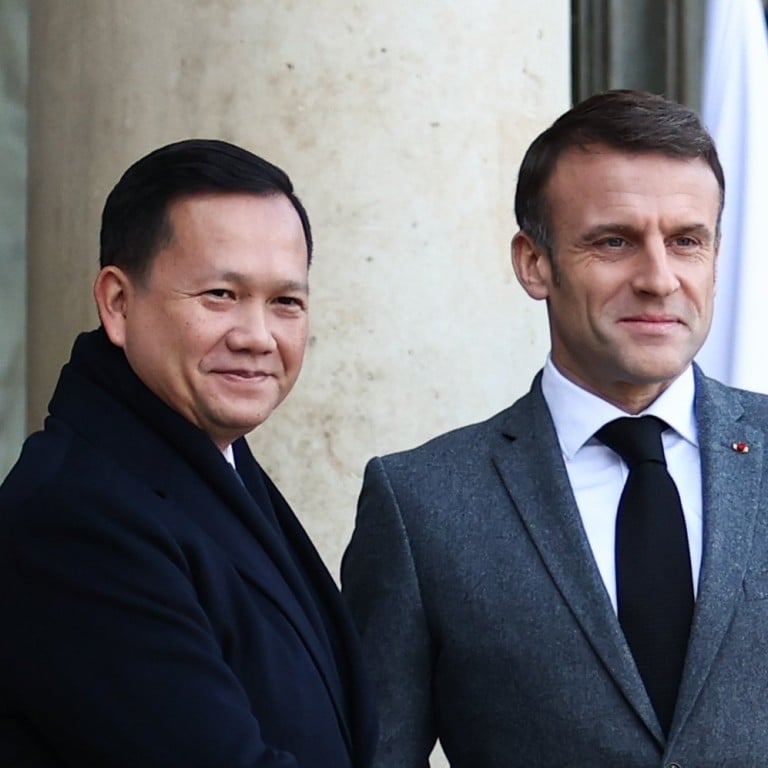
France visit offers ‘margin of manoeuvre’ in Cambodia’s bid to ease reliance on China
- A ‘counterbalancing’ approach could work for France as Cambodia will not be against ‘marginal diversification’ from its close ties with China, analysts say
- Japan is also a vital ‘hedge’ for Cambodia to help maintain a strategic equilibrium amid US-China tensions, they add
Cambodian leader Hun Manet’s visit to France last week to discuss defence cooperation, among other issues, gives the Southeast Asian nation “a margin of manoeuvre” of counterbalancing its over-reliance on China, analysts have said.
Together with Cambodia’s increased security cooperation with Japan, foreign policy experts said the Paris trip represented Phnom Penh’s tilt “towards diversification” as it sought to hedge its bets among the great powers vying for dominance in the region.
During Manet’s state visit to France on Thursday and Friday, he met French President Emmanuel Macron at the Elysee Palace, where Paris confirmed that it would provide €200 million (US$217 million) in support of Cambodia’s vocational training, energy, and water treatment sectors.
France is the first country in Europe and outside Asia that Manet has visited since assuming office in August.
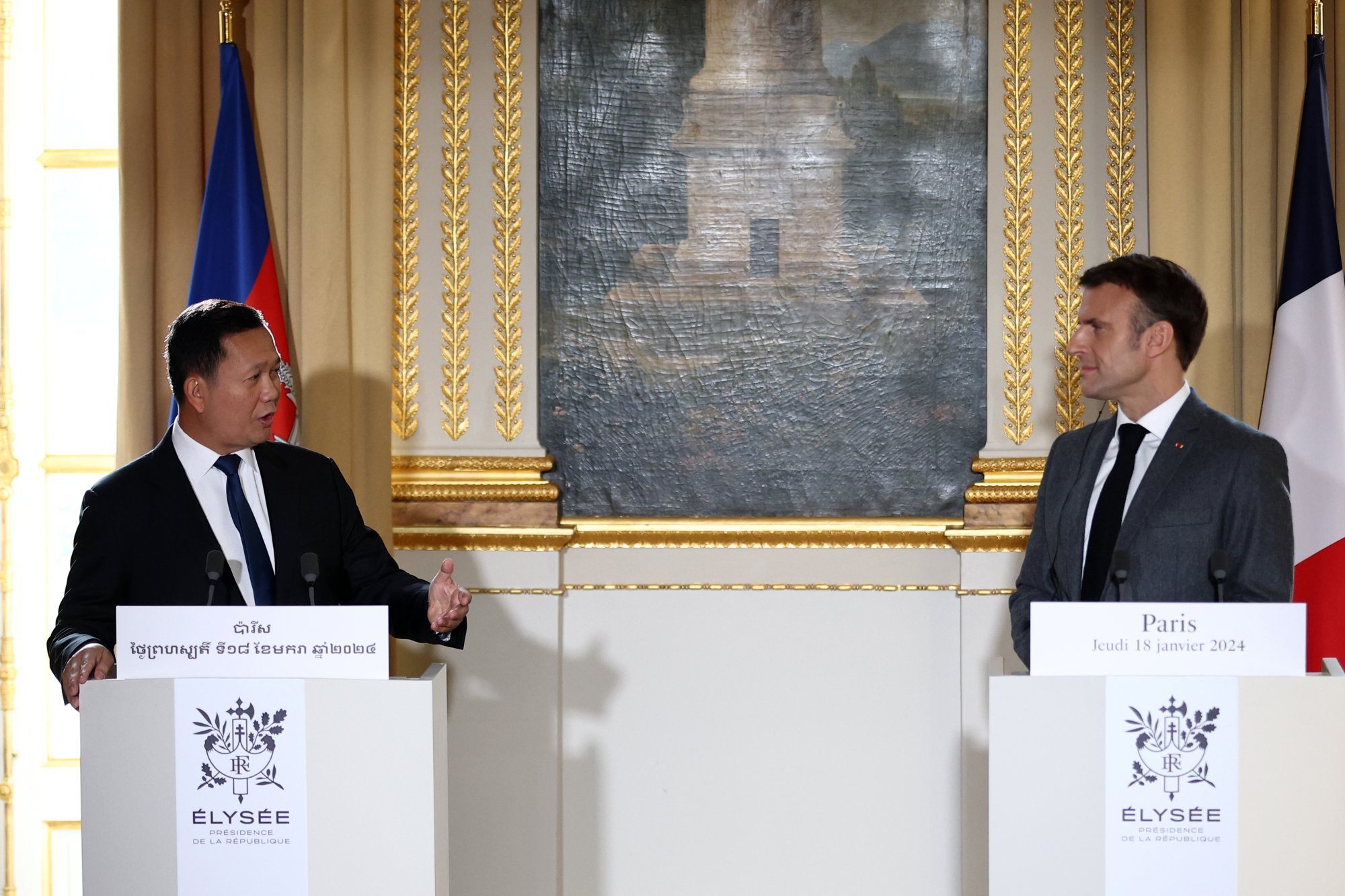
While the trip largely focused on economic cooperation, as well as clean water, energy, and education initiatives, Macron also discussed Cambodia’s role in France’s Indo-Pacific strategy.
Following the release of the Indo-Pacific Strategy by the United States in February 2022, many mainly Western countries have come up with similar strategies, widely seen as blueprints to countering China’s growing dominance in the region.
In a letter to Manet on December 31, Macron said France hoped to work with Cambodia on defence, adding that the two nations ought to “develop new projects in an Indo-Pacific space which is open, and regulated by international law”.
Sophal Ear, associate professor at the Thunderbird School of Global Management at Arizona State University, said Paris was suggesting opportunities for defence sales and even joint military exercises.
“While the details are sketchy, the language [used in the letter] is inclusive,” Ear said, noting Macron’s mention of the rule of law and the respect for international norms were “very much the verbiage of the US and the West”.
“It sounds like magical thinking to believe Cambodia would be on board with that,” he added, referring to the kingdom’s official neutral foreign policy stance but increasingly close ties with China.
In recent years, China has often been accused of violating international norms and treaties such as the United Nations Convention on the Law of the Sea through its routine harassment of civilian vessels, most notably in the South China Sea.
The world’s third-biggest arms exporting nation after the US and Russia, France’s weapons exports totalled US$30 billion in 2022, with two-thirds going to the Middle East, 23 per cent to Europe and 8 per cent to Asia and Oceania.
While France had offered arms to Cambodia back in the 1960s, it also played an active peacekeeping role in Cambodia in the early 1990s. Under the United Nations Transitional Authority in Cambodia, Paris sent peacekeeping forces and supported the disarmament of different Cambodian armed factions.
In recent years, the French army has trained Cambodian soldiers at the kingdom’s Thmart Porng Military Academy and the National Center for Peacekeeping Forces, Mines and Explosive Remnants of War Clearance.
Last March, the French military ship Le Prairial anchored at the Sihanouk Autonomous Port for four days, the first stop in Cambodia by a French navy vessel in seven years.
‘No hope’ for Cambodians as poll walkover hands Hun Sen succession moment
Sophie Boisseau du Rocher, associate research fellow at the Paris-based French Institute of International Relations’ Center for Asian Studies, said France’s position in Cambodia had shrunk dramatically over the past three decades under former leader Hun Sen.
With Cambodia’s closest ally being a “proactive China”, the best approach for Paris would be to develop a “position of counterbalancing” as having a partner in Paris would give Phnom Penh “a margin of manoeuvre”, du Rocher said.
“Phnom Penh will not be against a potential but marginal diversification,” she said, adding that Manet was unlikely to be impressed by any Indo-Pacific strategy “but the term is fashionable and resonates with French higher officials”.
Cambodia, which has increasingly come under China’s orbit, is heavily dependent on its giant neighbour for trade and investments, as well as funding for infrastructure and developmental projects. According to the kingdom’s Ministry of Commerce, bilateral trade reached over US$12 billion by the end of 2023.
Cambodia is equally reliant on China militarily. It receives weapons, equipment and military training from its neighbour, which also helps develop the kingdom’s naval capabilities, including infrastructure development at the Ream Naval Base in Sihanoukville.
Part of those developments are a deepening of the water around the base, which will allow larger warships, including those from China, to dock and operate in the area. In 2019, reports first emerged of a secret agreement that would give China basing rights at Ream, a claim that Phnom Penh denies.
Last month, Chinese naval ships including the Wenshan, a Type 056A corvette, were seen moored at the base, said to be the first for any ship from a foreign navy.
Cambodia and China also routinely conduct the Golden Dragon joint exercises, most recently in March, in which both sides train for security operations around major events and humanitarian rescues.
To the extent that its “paramount and ironclad friendship with China allows”, Cambodia is increasingly eager to diversify its foreign relations, according to Astrid Norén-Nilsson, senior lecturer at the Centre for East and Southeast Asian Studies at Sweden’s Lund University.
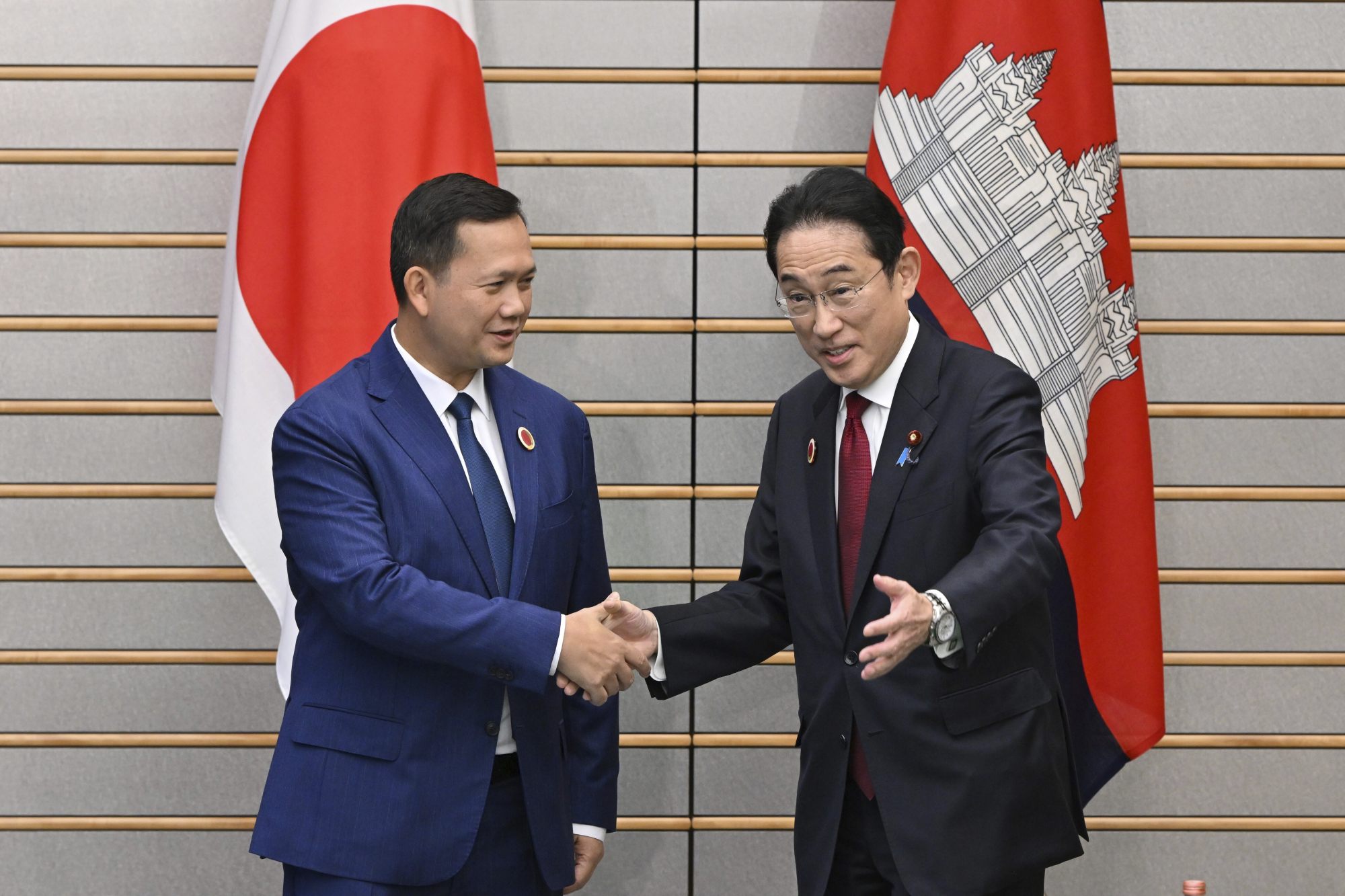
Cambodia and Japan last month agreed to take steps to deepen security cooperation, including launching sub-cabinet level defence talks.
Chhay Lim, a visiting fellow at Cambodia’s Institute for International Studies and Public Policy’s Center for Southeast Asian Studies, said that as one of Cambodia’s largest sources for both Overseas Development Assistance and foreign direct investment, Japan was a vital “hedge” for Cambodia.
“Cambodia has been utilising Japan to maintain a strategic equilibrium amid US-China tensions,” Lim said, adding that among Cambodia’s policy elites, Tokyo was seen as a more comfortable partner compared to the assertiveness of the US, especially on human rights and democracy.
In recent years, the US and rights groups have taken the Cambodian government to task for intensifying its onslaught on political opposition, civil society, and the few remaining independent media outlets in the country.
‘No hope’ for Cambodians as poll walkover hands Hun Sen succession moment
“Cambodia cannot overly rely on China and truly understands the risks,” Lim said, noting that the Japanese Self-Defence Forces’ port visit to Cambodia in March and April, as well as the first senior defence officials’ talks in November, did more than strengthen defence ties between Phnom Penh and Tokyo.
“[They also] helped Cambodia a lot in terms of dispelling suspicions on possibly hosting the Chinese Navy in Ream Base,” Lim said.
Norén-Nilsson said Cambodia was wary of ending up in one camp in a divided world and “as global security deteriorates, it tilts towards diversification”.
“The central problem for the new generation of Cambodia foreign policy pundits and practitioners is that of a small state hedging between great powers,” she added.


